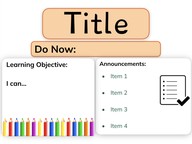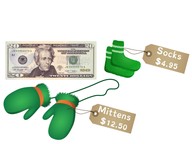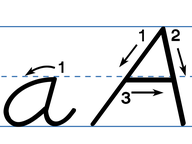
Organize a logical event sequence that unfolds naturally
I can understand, organize, and write a logical event sequence that unfolds...



8,000 schools use Gynzy
92,000 teachers use Gynzy
1,600,000 students use Gynzy
General
In this lesson, students learn how to organize the events in their stories to ensure that they flow logically and naturally for a reader. They will practice using narrative plot charts and read then organize two short stories: "The Emperor’s New Clothes" by Hans Christian Andersen and "The Necklace" by Guy de Maupassant. In the end, students will write a sequel to "The Necklace" using the skills they've learned.
Standards
CCSS.ELA-Literacy.W.6.3a; CCSS.ELA-Literacy.W.7.3a; CCSS.ELA-Literacy.W.8.3a
Learning objective
Students will be able to write narratives with well-structured event sequences.
Introduction
Explain that just as you must follow a specific order when performing a task like baking, the same goes for the events in a story. This ensures that the reader can fully understand and follow your story and that it all makes sense.
Instruction
Review the narrative plot structure and go over each section (exposition, rising action, climax, falling action, and resolution). After this, have students read "The Emperor’s New Clothes" by Hans Christian Andersen. Next, put the events from the story in order by using the pencil tool to number each event. You can have students work independently or in groups to place the events of "The Emperor's New Clothes" on a plot chart. Do the same for "The Necklace" by Guy de Maupassant.
Quiz
Students are given 10 questions in which they practice defining the logical order of sequence as well as determining which moment of sequence is given in a story.
Closing
Students will write a sequel to "The Necklace" by Guy de Maupassant. You may choose to reread the story or the ending and have students brainstorm their own sequels/endings. Students can plan their event sequence on a plot chart.
Teaching tips
You may choose to go over transition words to help students organize their narrative writing.
The online teaching platform for interactive whiteboards and displays in schools
Save time building lessons
Manage the classroom more efficiently
Increase student engagement
Discover more!
About Gynzy
Gynzy is an online teaching platform for interactive whiteboards and displays in schools.
With a focus on elementary education, Gynzy’s Whiteboard, digital tools, and activities make it easy for teachers to save time building lessons, increase student engagement, and make classroom management more efficient.



